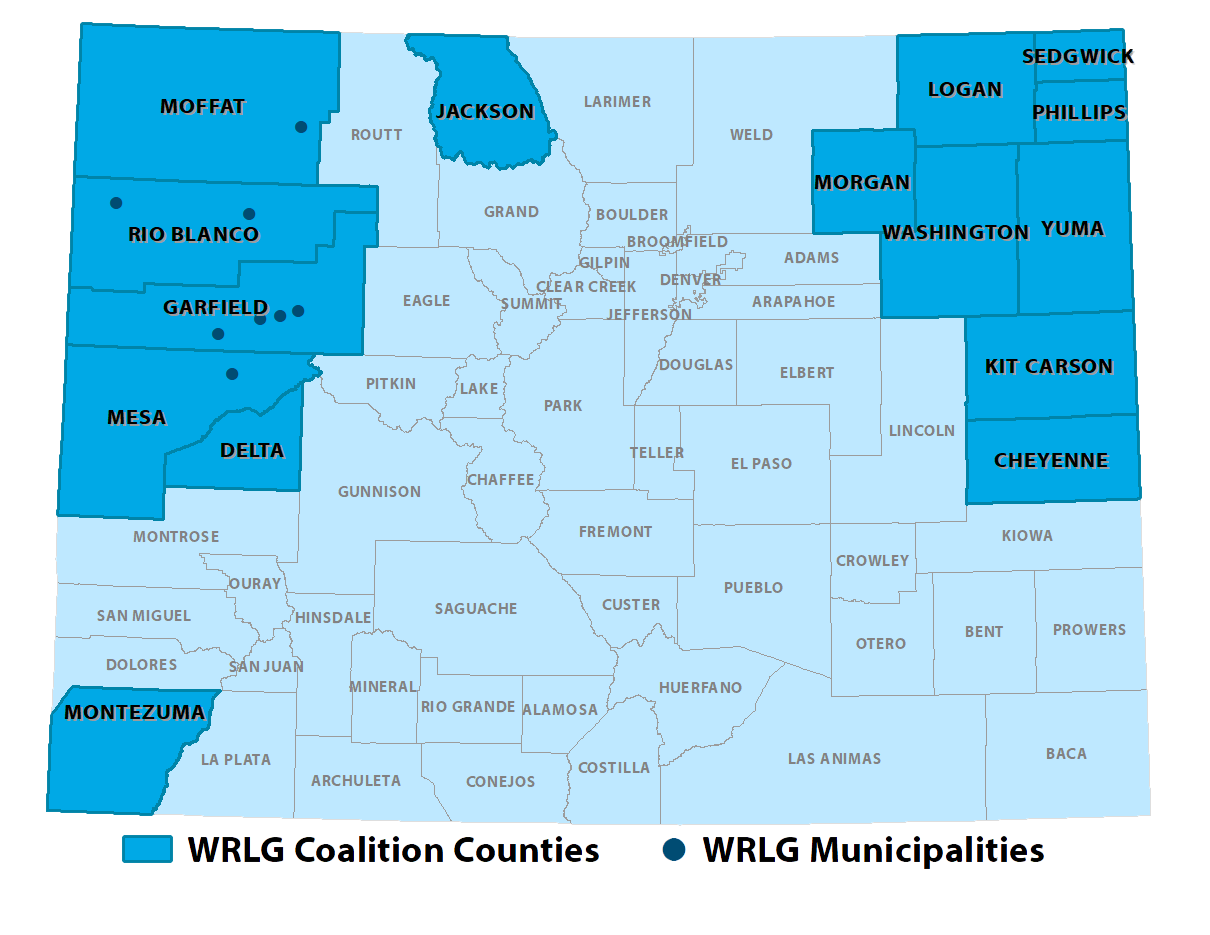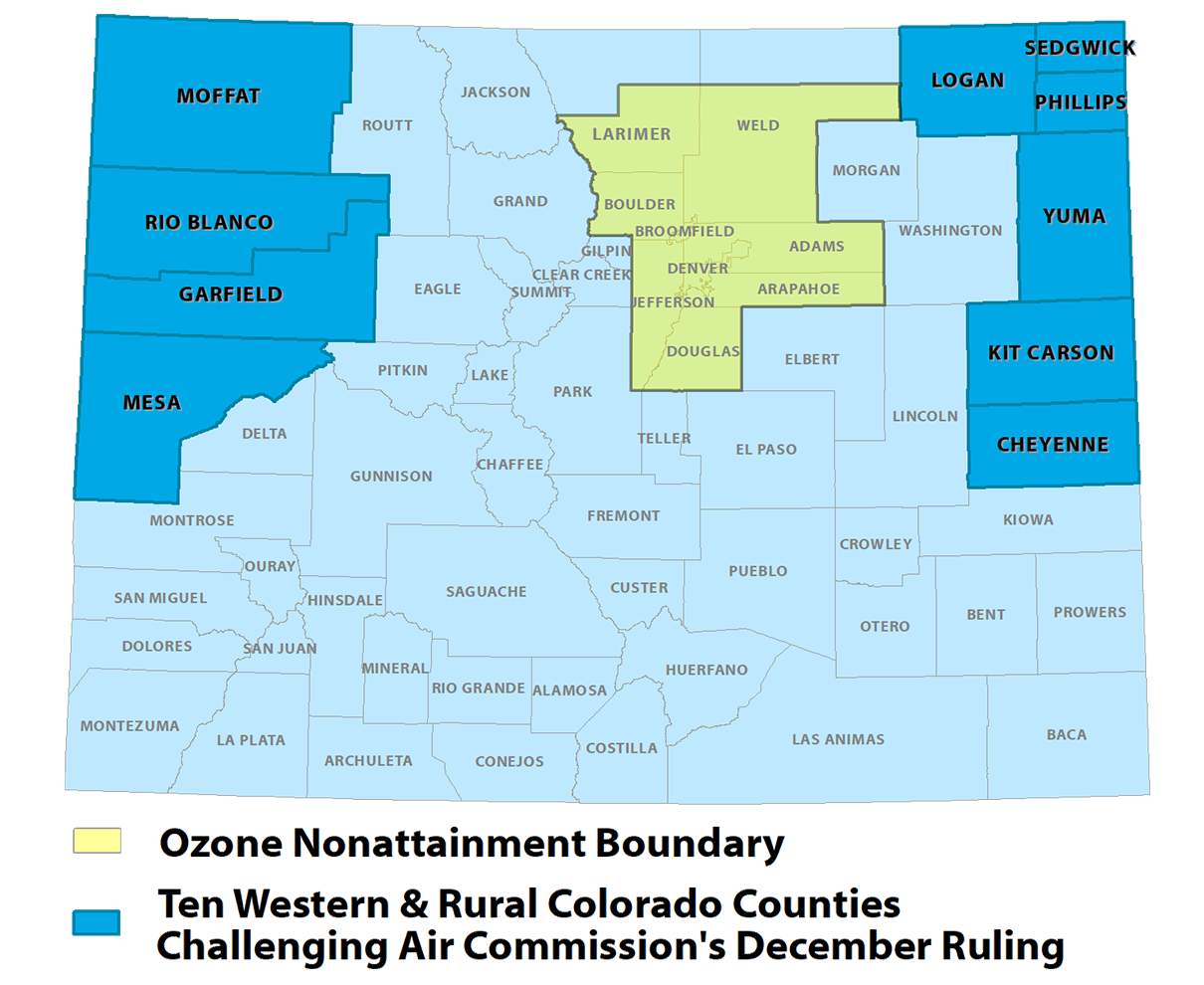Western and rural local government coalition
Who we are
The WRLG is made up of 23 counties and municipalities in Colorado’s rural areas – from Eastern Plains to the Western Slope – representing 31% of the total land area in Colorado. Our members value clean air and have taken tangible measures that allow us to meet and exceed federal health-based air quality standards. But recent rule making processes in Colorado have threatened to take away our local government’s ability to make important land use decisions at the local level, while creating significant economic harm with little or no benefit to the environment in our communities. This coalition has come together to provide a rural voice for the public welfare, environmental concerns and economic viability of our communities.



Western and Rural Local Government Coalition (WRLG)
By representing nearly a third of Colorado’s land area, and living in communities that value clean air and environmental protection policies, our goal is to provide a viable and united voice for Colorado’s less populous areas outside of the Front Range.
COMMON SENSE APPROACH
We advocate for a reasonable, common sense approach to rulemaking, rather than the “one size fits all” approach taken by the Air Quality Control Commission (Air Commission) that creates significant economic and public welfare harm to our communities without tangible benefits.
- Colorado’s rural areas have a large portion of the lowest producing and emitting wells. The proposed rules will make many of these smallest wells uneconomic, which will result in termination of production.
- Ceasing production will cut off mineral property income from severance, ad valorem, and property taxes on oil and gas production that, in these rural areas, provide a disproportionate share of county revenues used for public services such as schools, libraries, community health care, and other social services.
- As adopted, the several revised rules we are challenging do little to assist the Front Range counties in meeting the 8-hour ozone standards. If oil and gas emissions were reduced to zero in our western and rural counties, ozone at failing monitors will only decrease by 0.3 parts per billion (ppb). The cost-prohibitive rules adopted for the lowest producing facilities will produce reductions that are only a small fraction of 0.3 ppb, based on the State’s own modeling.
DIVERSE STATE
Colorado is an extremely diverse state in numerous aspects from the East Plains to the Western Slope, with many unique needs and challenges.
- The costs of adopted rules for the smallest wells have disproportionately adverse impacts on rural communities with projected job losses from 55 to 280 full time positions and labor income losses of up to $8 million.
- The proposed rules create greater fiscal pressure on western and rural county governments and special districts—as much as $3.8 million in lower tax revenues, which will have a negative impact on the public welfare of residents by cutting public services such as police and fire protection, schools, libraries, community health care and other social services.
- The oil and gas employment share in these rural Colorado areas is more than triple the state-wide share.
- Under the Colorado Administrative Procedure Act and the Colorado Air Act, the Air Commission is required to do a regulatory cost/benefit and an economic impact analysis of all proposed rules. The Division failed to properly do so in promoting these rules, and the Air Commission failed to require other parties to do so.
PROVEN RECORD
Our communities have a proven record of meeting federal health-based air quality standards, but we’re being asked to impose costly requirements as if we’re not meeting those standards.
- Air quality in Garfield County (specifically) continues to improve. Since 2008, total VOCs have shown a significant downward trend.
- Even during peak oil and gas production periods, Garfield County attained the 8-hour ozone federal health-based standard.
- We live in rural communities that meet all federal health-based air quality standards, but are being asked to implement new rules that will have little air quality impact, with a highly negative local economic impact.


